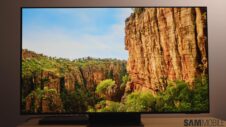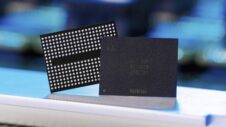Samsung announced its financial results for the first quarter of 2016 earlier today. The company recorded a revenue of KRW 49.78 trillion ($43.46 billion) and an operating profit of KRW 6.68 trillion ($5.84 billion). The South Korean electronics giant said that the increase in its revenue and profit is a result of the early launch and successful sales of the Galaxy S7 and S7 edge, increased sales of OLED display panels, better memory product mix, and increased sales of its 14nm chips. The company's revenue increased 5.7 percent year-on-year and its profits increased 12 percent year-on-year.
The company's Mobile and IT Communications division recorded a consolidated revenue of KRW 27.6 trillion with an operating profit of KRW 3.89 trillion ($3.4 billion), which is an increase of 6.6 percent and 42 percent year-on-year increase, respectively. Despite weak sales of smartphones, the company's overall profit increased due to an early launch of the Galaxy S7 and S7 edge. The company said that it expects weak demand for smartphones and tablets in the next quarter, but plans to tackle the problem using its mid-to-low-end Galaxy J and Galaxy A series.
Samsung's semiconductor business reported a revenue of KRW 11.15 trillion with an operating profit of KRW 2.63 trillion. The memory division saw good sales in the segment despite a weak season, but System LSI recorded solid sales. Samsung expects a steady demand for its memory and other semiconductor products in the next quarter. The company also expects to begin mass production of its second-generation 10nm products later this year.
In the display segment, Samsung posted a revenue of KRW 6.04 trillion and an operating profit of KRW 0.27 trillion. Samsung's display division saw a decrease in demand for LCD panels, but the sales of OLED display panels shined due to increasing demand for high-end smartphones. The company plans to expand the customer base for its OLED panels and improve profitability for LCD panels.
The company's Consumer Electronics (CE) division, which consists of TVs, digital appliances, printers, and health and medical equipment, posted a consolidated revenue of KRW 10.62 with an operating profit ofKRW 0.51 trillion. Its TV business recorded improved earnings with the help of high-end UHD TVs and curved TVs, but the demand decreased due to seasonality and an economic downturn in emerging markets. However, the company is expecting an increase in demand due to Olympics. Its digital home appliances business showed some improvement with the sales of Chef Collection refrigerators and ActiveWash washing machine.







